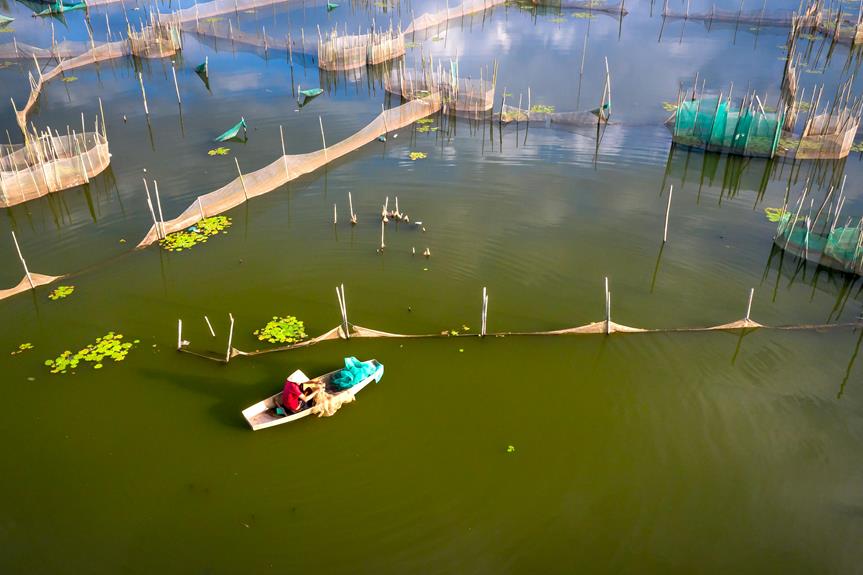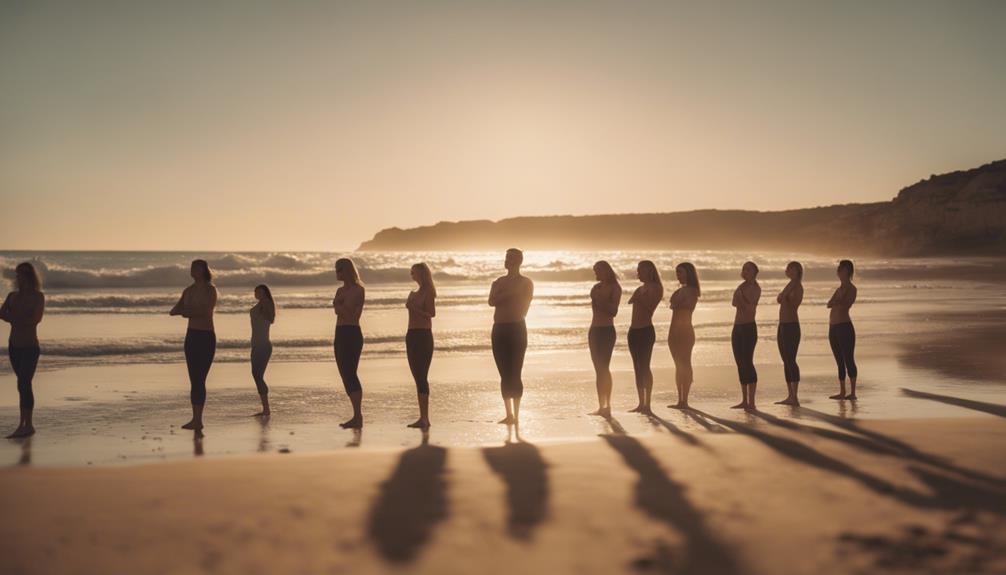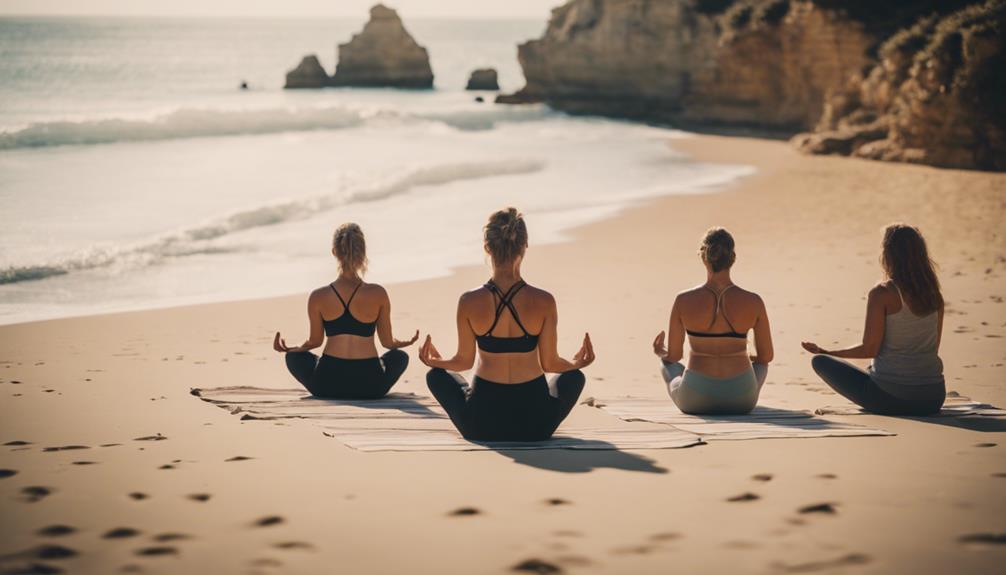As I explore the enchanting fishing villages of Algarve, Portugal, I am delighted to uncover their time-honored traditions. These coastal communities hold a special place in the hearts of locals and visitors alike, exuding a warm and welcoming charm.
Stepping into Ferragudo, a picturesque village, feels like entering a world filled with rich history and cultural heritage. Every morning, the village square comes alive as we gather to savor the delightful flavors of traditional Portuguese coffee and pastries, while witnessing the fishermen expertly unload their bountiful catches.
From storks nesting on the remnants of old sardine factories to invigorating outdoor activities and mouthwatering Portuguese cuisine, these fishing villages offer a unique and memorable experience for those who seek to serve and appreciate the beauty of tradition.
Table of Contents
Key Takeaways
- Fishing has been the main livelihood of Algarve’s fishing villages for centuries, and their connection to the ocean is palpable.
- Traditional fishing techniques and tools, passed down through generations, are a source of pride and heritage, and directly influence the flavors and dishes of the region.
- Algarve’s fishing villages offer a delightful array of traditional dishes, with communal dining experiences and attention to detail in presentation.
- Festivals and celebrations showcase the rich cultural heritage of the region, with traditional music, dance performances, and freshly caught seafood taking center stage.
History of Algarve’s Fishing Villages
To understand the rich traditions of Algarve’s fishing villages, I’ll delve into the history that has shaped these communities.
One such charming fishing village along the Algarve Coast is Ferragudo, a small town that embodies the essence of a traditional Portuguese fishing village. As you walk along its cobblestone streets, you can’t help but feel the authenticity and charm that permeates every corner.
The history of Ferragudo and other fishing villages in the Algarve is deeply intertwined with the sea. These villages have relied on fishing as their main livelihood for centuries, passing down their knowledge and techniques from generation to generation. The connection between the community and the ocean is palpable, and it’s this bond that has shaped the traditions and way of life in these villages.
From the early morning routines at Praia Grande, where locals and visitors gather to witness the fishermen unloading their catch, to the remnants of old sardine factories and canneries, the history of Algarve’s fishing villages is etched into every aspect of daily life.
This rich history sets the stage for the subsequent section, where we’ll explore the traditional fishing techniques and tools that have been used for centuries.
Traditional Fishing Techniques and Tools
As I delve into the time-honored traditions of Algarve’s fishing villages, one can’t overlook the significance of traditional fishing techniques and tools, which have been passed down through generations.
In the charming town of Ferragudo, the Nossa Senhora da Encarnação church stands as a testament to the deep-rooted connection between the fishing communities and their faith. The whitewashed cottages that line the narrow streets tell a story of simplicity and resilience, reflecting the fishermen’s unwavering dedication to their craft.
The tools they use, such as nets, lines, and hooks, are carefully crafted and meticulously maintained, ensuring a successful catch. These techniques and tools aren’t only a means of survival but also a source of pride and heritage for the local fishermen.
Transitioning into the subsequent section about local cuisine and culinary traditions, these traditional fishing techniques directly influence the flavors and dishes that grace the tables of Algarve’s fishing villages.
Local Cuisine and Culinary Traditions
In my exploration of Algarve’s fishing villages, I am fascinated by the local cuisine and culinary traditions that have been passed down through generations. The villages of Algarve, such as Ferragudo, offer a delightful array of traditional dishes that showcase the region’s rich seafood heritage. One iconic dish is lulas, grilled squid cooked in olive oil and garlic, which perfectly highlights the freshness and flavors of the sea. Another culinary tradition that stands out is the communal dining experience, where Portuguese linguica, a pork sausage, is cooked tableside using a terracotta grill. This practice not only brings people together but also reflects the pride in traditional cooking methods. The attention to detail and appetizing presentation of Portuguese food is truly remarkable, capturing the essence of local culinary traditions. And let’s not forget the affordable and highly regarded Portuguese wines, which provide the perfect complement to any meal. The diverse culinary landscape of Algarve’s fishing villages truly offers a feast for the senses, immersing visitors in the time-honored traditions and flavors of the region.
| Traditional Dish | Description |
|---|---|
| Lulas | Grilled squid cooked in olive oil and garlic, showcasing the freshness and flavors of the sea |
| Portuguese Linguica | Pork sausage cooked tableside using a terracotta grill, reflecting communal dining and traditional cooking methods |
| Portuguese Wine | Highly regarded and affordable, with many bottles priced under 10 euros, providing an opportunity to experience the local wine culture |
Festivals and Celebrations in Fishing Villages
I love experiencing the vibrant festivals and celebrations that take place in Algarve’s fishing villages. These events are filled with joy, laughter, and a strong sense of community. Here are three reasons why these festivals and celebrations are truly special:
- Cultural Showcase: The festivals and celebrations in fishing villages like Ferragudo offer a unique opportunity to immerse oneself in the rich cultural heritage of the region. From traditional music and dance performances to colorful parades and processions, these events showcase the local traditions and customs that have been passed down through generations.
- Culinary Delights: Food plays a central role in these festivities, with freshly caught seafood taking center stage. Visitors can indulge in mouthwatering dishes such as grilled sardines, octopus salad, and cataplana, a traditional seafood stew. The aroma of these delectable dishes fills the air, adding to the festive atmosphere.
- Sense of Togetherness: The festivals and celebrations bring the entire community together, fostering a strong sense of belonging and unity. Locals and visitors alike join in the festivities, dancing and singing along to traditional tunes. The warm hospitality of the fishing village residents creates an inviting atmosphere, making everyone feel like part of the family.
Attending these festivals and celebrations in Algarve’s fishing villages is an unforgettable experience that allows you to appreciate the rich cultural heritage and close-knit communities that thrive in these coastal towns.
Preserving Cultural Heritage in Algarve’s Fishing Villages
Attending these festivals and celebrations in Algarve’s fishing villages, I have witnessed the dedicated efforts made to preserve the cultural heritage of these communities. From the preservation of traditional breakfast staples like Galao coffee and Pastel de Nata, to the protection of wildlife such as storks and seagulls, every aspect of Algarve’s fishing villages contributes to the preservation of their time-honored traditions.
To provide a visual representation of the cultural heritage in these villages, let’s take a closer look at Ferragudo:
| Aspects of Cultural Heritage | Preservation Efforts |
|---|---|
| Traditional Portuguese breakfast staples | Locals and visitors gather in the central square to enjoy Galao coffee and Pastel de Nata. |
| Wildlife | Storks are protected and their nests preserved in the remnants of old sardine factories. |
| Outdoor activities | Walking along the cliffs and trails near the beaches and dining at beachfront restaurants help preserve the village’s natural beauty. |
| Portuguese cuisine | Popular dishes like Lulas and traditional items like Portuguese linguica contribute to the preservation of culinary traditions. |
Frequently Asked Questions
What Is the Algarve Like in October?
In October, the Algarve offers pleasant weather and a variety of outdoor activities. From exploring historical sites to enjoying the beautiful beaches and indulging in culinary delights, there’s something for everyone to experience in this charming region.
How Many Days Do You Need in the Algarve?
I would recommend spending at least 5 days in the Algarve to fully experience its best beaches, top activities, exploring its cuisine, discovering hidden gems, marveling at its natural wonders, and immersing yourself in its cultural landmarks. It’s a paradise for outdoor adventures!
What Is the Algarve Like in November?
In November, the weather in Algarve is mild and pleasant, perfect for outdoor activities. It’s an off-peak tourist season, so you can explore the natural beauty, historical sites, and enjoy the local cuisine and cultural events.
Can You Sunbathe in Algarve in November?
Yes, you can sunbathe in Algarve in November. While the weather may not be as hot as in the summer, there are still beautiful beaches like Ferragudo where you can enjoy the sun.
Conclusion
As I stand on the shores of Ferragudo, I’m reminded of the timeless wisdom hidden within the traditions of Algarve’s fishing villages.
Just as the fishermen cast their nets and reel in their bountiful catch, we too must cast our hopes and dreams into the vast ocean of life.
And just like the storks that nest in the remnants of old factories, we must adapt and find beauty in the remnants of our past.
Let’s preserve these cultural treasures and honor the spirit of our ancestors.



